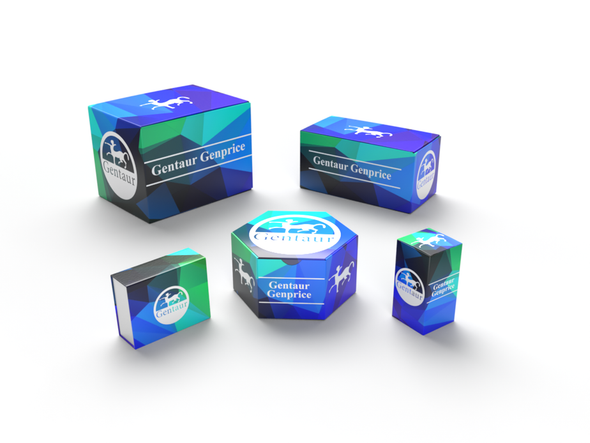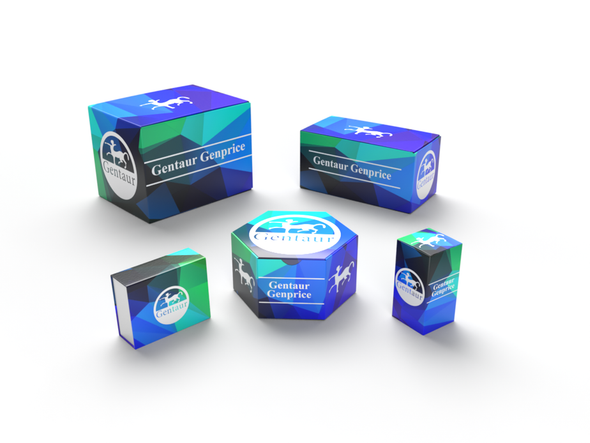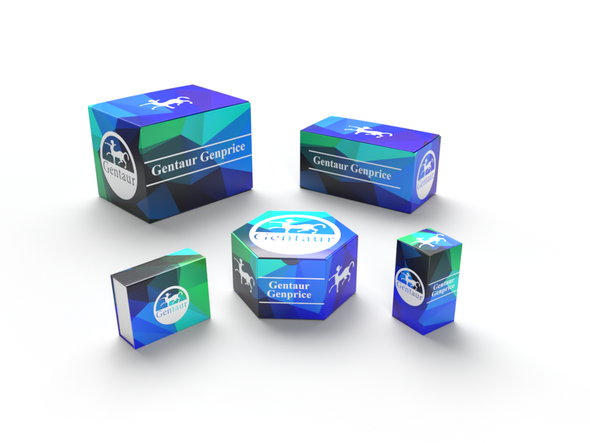Description
Mouse Anti-Human EGFR Antibody | 101-M386 | Gentaur UK, US & Europe Distribution
Species: Anti-Human
Host / biotech: Mouse
Comment: N/A
Label: N/A
Clone / Antibody feature: (#5S21)
Subcategory: Monoclonal Antibody
Category: Antibody
Synonyms: EGF receptor; EGFR; ERBB; HER1; mENA; ERBB1; PIG61;
Isotype: IgG2
Application: WB
Detection Range: N/A
Species Reactivity/Cross reactivity: Human
Antigen: Human recombinant EGF-R EC domain
Description: The epidermal growth factor receptor (EGF R) subfamily of receptor tyrosine kinases comprises four members: EGF R (also known as HER1, ErbB1 or ErbB), ErbB2 (Neu, HER2), ErbB3 (HER3), and ErbB4 (HER4). All family members are type I transmembrane glycoproteins that have an extracellular domain which contains two cysteine-rich domains separated by a spacer region that is involved in ligand binding, and a cytoplasmic domain which has a membrane-proximal tyrosine kinase domain and a C-terminal tail with multiple tyrosine autophosphorylation sites. The human EGF R gene encodes a 1210 amino acid (aa) residue precursor with a 24 aa putative signal peptide, a 621 aa extracellular domain, a 23 aa transmembrane domain, and a 542 aa cytoplasmic domain. EGF R has been shown to bind a subset of the EGF family ligands, including EGF, amphiregulin, TGF α, betacellulin, epiregulin, heparin-binding EGF and neuregulin-2α in the absence of a coreceptor. Ligand binding induces EGF R homodimerization as well as heterodimerization with ErbB2, resulting in kinase activation, tyrosine phosphorylation and cell signaling. EGF R can also be recruited to form heterodimers with the ligand-activated ErbB3 or ErbB4. EGF R signaling has been shown to regulate multiple biological functions including cell proliferation, differentiation, motility and apoptosis. In addition, EGF R signaling has also been shown to play a role in carcinogenesis.
Purity Confirmation: N/A
Endotoxin: N/A
Formulation: lyophilized
Storage Handling Stability: Lyophilized samples are stable for 2 years from date of receipt when stored at -20°C. Reconstituted antibody can be aliquoted and stored frozen at < -20°C for at least six months without detectable loss of activity.
Reconstituation: Centrifuge vial prior to opening. Reconstitute the antibody with 500 µl sterile PBS and the final concentration is 200 µg/ml.
Molecular Weight: N/A
Lenght (aa): N/A
Protein Sequence: N/A
NCBI Gene ID: 1956






